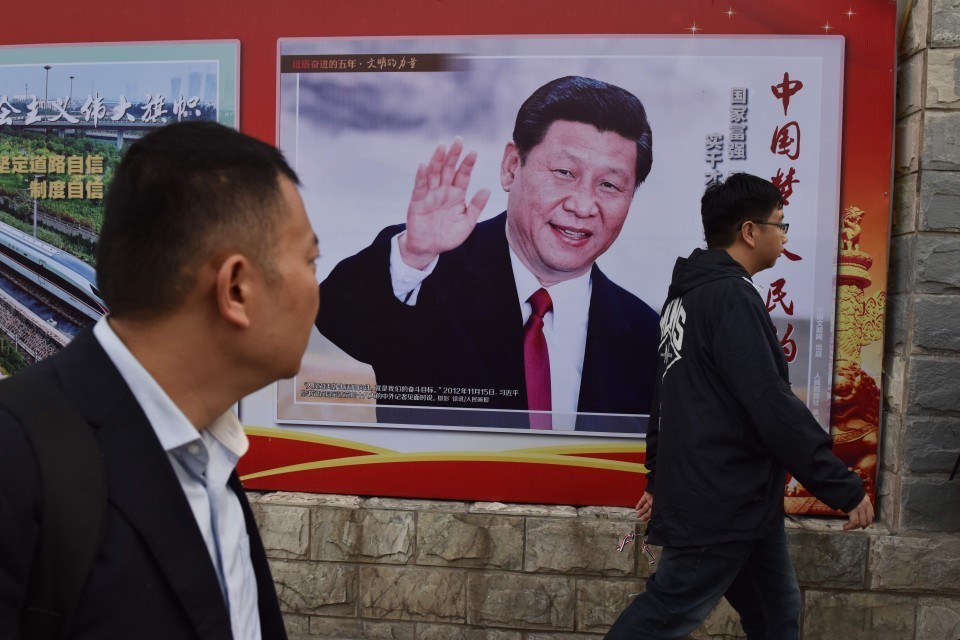Nathan Gardels is the editor-in-chief of Noema Magazine. He is also the co-founder of and a senior adviser to the Berggruen Institute.
One of the chief aims of The WorldPost is to bring global voices to our readers, including from China, which the United States has officially labeled a strategic rival. Dissident voices from the Middle Kingdom are most often heard in the American media; voices that are dissonant to Western ears but more in line with the Chinese mainstream, not so much. Shutting out such voices only contributes to a continued misreading of events in China.
To that end, this week we publish a perspective from within China that supports President Xi Jinping’s strong hand at the helm as just what that nation needs in these tumultuous times. And we do so in the context of previously published critical opinions.
In the wake of the decision to end term limits for China’s president, Francis Fukuyama recently wrote on “the bad emperor problem,” in which he argued that Xi could become an absolute ruler in the disastrous mold of Mao.
“The rules that have just been tossed out the window were the result of China’s own painful experience during the Cultural Revolution,” Fukuyama wrote. “A dictatorship with few checks and balances on executive power, like independent courts, a free media or an elected legislature, can do amazing things when the emperor is good: think of former Prime Minister Lee Kuan Yew during the early years of Singapore’s growth. The downfall of earlier Chinese regimes has been the emergence of a bad emperor, who could plunge the country into terrible crisis since there were no effective limits on his or (as in the case of the Tang Dynasty’s ‘Evil Empress Wu’) her power.”
In my own comments, I’ve warned that “personalist rule without any restraints, as Xi is being granted, is positively detrimental because there is no corrective mechanism to change course, no off ramp if the chosen path is misguided. Government, whether by dictators or by democrats who win a majority in elections, is the ‘positive’ — the power to act. Constitutional rule is the ‘negative’ — the institutionalized capacity to modify or arrest action.”
Eric X. Li, one of China’s most successful — and outspoken — venture capitalists, is not worried by such concerns. He argues that removing presidential term limits has only aligned the top government office with the top slot in the Communist Party, which has no defined terms, and that is a good thing.
“Bringing the presidency’s institutional mechanics in line with the office of party general secretary, and for them to be occupied by the same person, will create a more efficient and coherent governing structure and more transparency and predictability in China’s dealings with the world,” he writes from Shanghai. “It lifts the veil of pretense that, somehow, the party and state governance are not one, which is untrue and wholly unnecessary and counterproductive at this stage of China’s development. It signals the maturing of the Chinese political system that shows the world clearly how decisions are made and who is in charge.”
Li further argues that Xi has not placed himself above the party but, on the contrary, has cemented the role of the party — more pluralistic today than ever before — as “central to China’s political DNA.” For Li, “the party has developed into one of the most elaborate and effective governing institutions in the world” responsible for “the greatest improvement in standard of living for the largest number of people in the shortest amount of time.”
Li also claims that “the feedback mechanisms and channels available to China’s leaders to effectively respond to the needs of society are much more abundant today. It was popular discontent with pollution that spurred Xi’s administration into action and achieved, in just three years, the extraordinary improvement in air quality that took London and Los Angeles decades to accomplish — and the latter went through major deindustrialization, while China remains a growing industrial power.”
Even to the extent that what Li says might be valid, and even though China will never adopt a Western-style constitution, it still needs “checks and balances with Chinese characteristics” to avoid the bad emperor problem. In the long history of China’s “institutional civilization,” meritocratic selection of officials has played the same central role as electoral competition in the West for circulating elites and providing critical advice to the ruler. If intra-party democracy under Xi is stymied by the demand for absolute fealty to the top leader and the ideology of “Xi Jinping Thought,” that check is gone.
Rulers at the top also become insulated from reality without robust feedback mechanisms. Censorship impedes the ability of the leadership to “seek truth from facts,” inviting an illusory construction of what’s actually happening on the ground. The problem of “alternative facts” will only deepen if underlings fear the messenger will suffer the consequences of conveying failure or criticism.
For now, as Fukuyama noted, the hope is that Xi will prove a good emperor who accomplishes the kind of solid advances for his vast nation — including eliminating corruption — that Lee Kuan Yew did for tiny Singapore. If not, the great historic test for China’s governing system, on which its sustainability rests, is whether it is self-correcting.
This was produced by The WorldPost, a partnership of the Berggruen Institute and The Washington Post.





